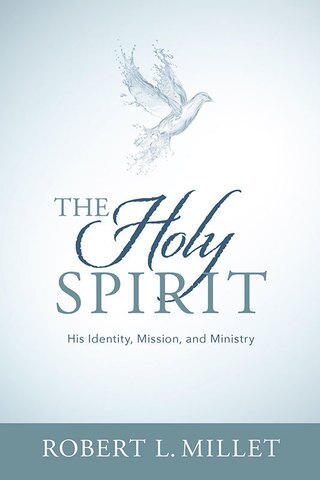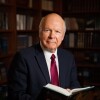In December 1839 the Prophet Joseph Smith and Elias Higbee traveled to Washington D.C., to seek redress from the government for the losses suffered by the persecuted and beleaguered Latter-day Saints. In their meeting with President Martin Van Buren, Joseph recorded that the president “interrogated us wherein we differed in our religion from the other religions of the day.” If you had been in the room and had been asked to respond to President Van Buren’s question, how would you have answered?
Perhaps you would have begun by explaining that Latter-day Saints believe that in the year 1820 God the Eternal Father and His Son Jesus Christ appeared in person in a grove in upstate New York to initiate a final gospel dispensation. Or you might have opened your copy of the Book of Mormon and read selected passages, emphasizing that you were reading from a sacred scriptural record kept by an ancient American branch of Israel. You might have emphasized that your religion teaches of a premortal existence, that all persons lived with God in the spirit before their mortal birth. Or maybe you would have explained how the visions of the glories (Doctrine and Covenants 76) is a scriptural commentary on the Savior’s words that “in my Father’s house are many mansions” (John 14:2). Any of those answers would have been correct; all of those doctrinal teachings are significant features of the restored gospel, perspectives that are distinctive from that which is found within more traditional Christianity.
And yet, the Prophet of the Restoration chose to give another answer altogether. “Brother Joseph said we differed in mode of baptism, and the gift of the Holy Ghost by the laying on of hands. We considered that all other considerations were contained in the gift of the Holy Ghost.” Joseph’s statement is a comprehensive reply that gets to the heart of the gospel of Jesus Christ. Suppose we had the teachings, covenants, ordinances, organizational structure, apostolic leadership, and missionary system of the current Church and yet there was no gift of the Holy Ghost? What then? What good are the teachings or doctrines if there is no Spirit to bring clarity or conviction to the souls of individuals? What good are the covenants and ordinances if there is no Holy Ghost acting as the Holy Spirit of Promise to ratify and approve and make binding those rites? And what possible good could come from sending tens of thousands of young men and women and experienced couples to all parts of the globe if there was no way by which listeners could come to know that the message of the restored gospel is from God and it is true?
Latter-day Saints believe that some form of the Church of Jesus Christ has been on the earth from the days of Adam and Eve; that prophets and seers have, through the generations, been raised up to deliver the mind of God; that priesthood powers and keys have been revealed to administer the gospel of Jesus Christ; and that the Holy Ghost has been conferred upon individuals throughout recorded time in order that they might be inspired, comforted, strengthened, warned, sanctified, and sealed up into eternal life. The Prophet of the Restoration thus declared: “We believe in the gift of the Holy Ghost being enjoyed now, as much as it was in the Apostles’ days. . . . We believe that the holy men of old spake as they were moved by the Holy Ghost, and that holy men in these days speak by the same principle.”
As the years go by, and as the pain and pressures of life drive me to my knees more frequently, I appreciate more fully just how significant the words of the Prophet Joseph Smith are. The grand distinction between the Latter-day Saints and other men and women of goodwill is indeed the gift of the Holy Ghost—that precious, proffered gift that can come to us only through the laying on of hands by those holding the Melchezidek Priesthood. That divine conferral is the difference, in how we as Latter-day Saints perceive our mortal experience; speak and teach and testify; face and deal with the inevitable tragedies and traumas of mortality; receive and are true and faithful to sacred, saving covenants and ordinances; and anticipate life everlasting in the world to come.
Lead image a screenshot from YouTube
Read more insights from Robert L. Millet in The Holy Spirit.
The Holy Spirit gives readers an in-depth description of all things pertaining to the third Member of the Godhead. It explains the gifts of the Spirit and why they're necessary, the role of the Holy Ghost and why it is important to us as Latter-day Saints, how we can live our lives to have the Spirit with us more abundantly and much more. Brother Millet also shares many personal experiences throughout to portray the necessity of having the gift of the Holy Ghost with us at all times and how it will help us reach our eternal destination.




